Inside the DNC: What it looked like from behind the scenes
Carmen Cusido used to be a Republican. These days, she’s a registered Democrat who’s all in for Kamala Harris. Here, she reports on what it was like to be an official volunteer during the Democratic convention
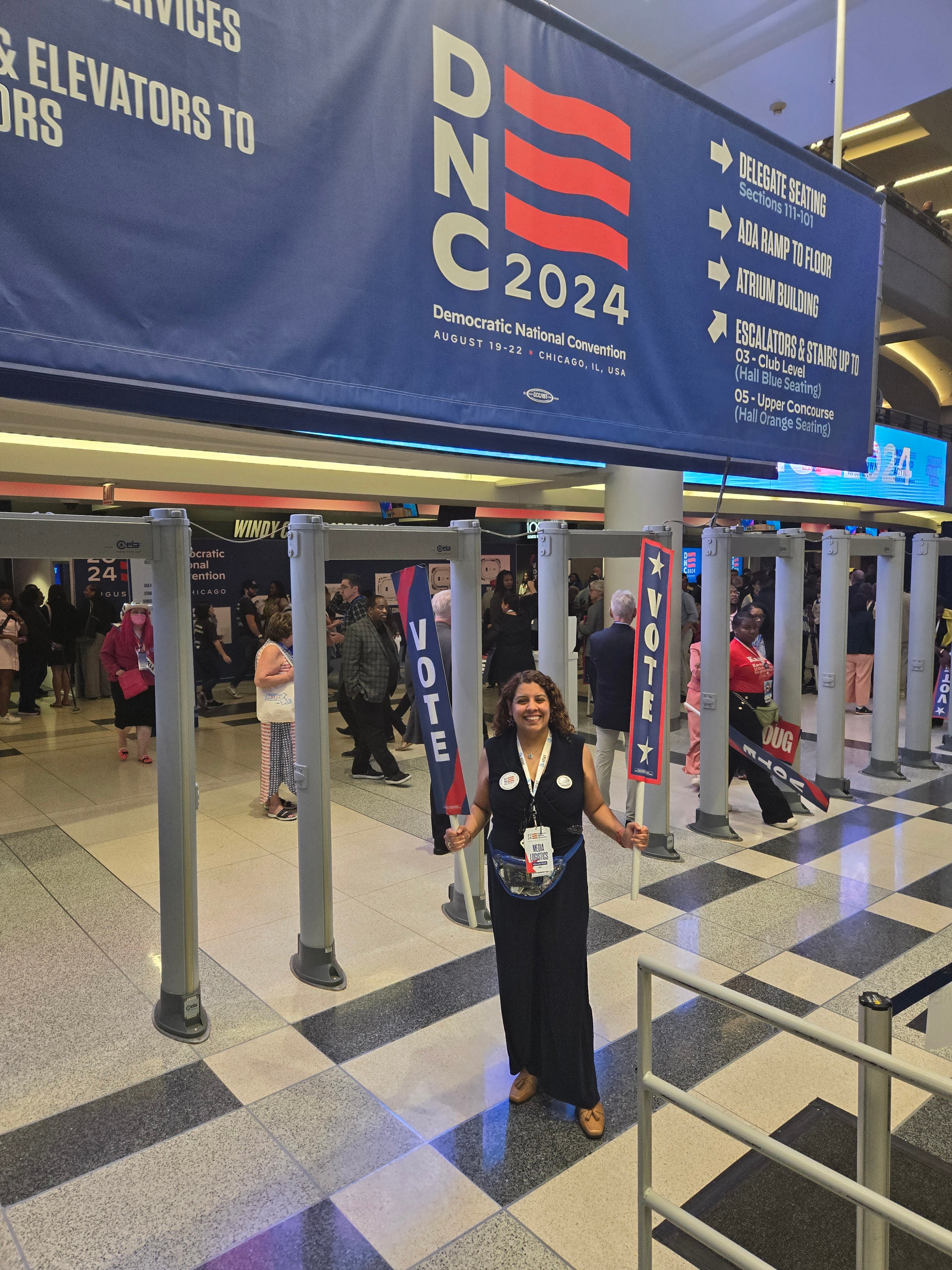
Your support helps us to tell the story
From reproductive rights to climate change to Big Tech, The Independent is on the ground when the story is developing. Whether it's investigating the financials of Elon Musk's pro-Trump PAC or producing our latest documentary, 'The A Word', which shines a light on the American women fighting for reproductive rights, we know how important it is to parse out the facts from the messaging.
At such a critical moment in US history, we need reporters on the ground. Your donation allows us to keep sending journalists to speak to both sides of the story.
The Independent is trusted by Americans across the entire political spectrum. And unlike many other quality news outlets, we choose not to lock Americans out of our reporting and analysis with paywalls. We believe quality journalism should be available to everyone, paid for by those who can afford it.
Your support makes all the difference.As a volunteer for the Democratic National Convention and a proud American, I had the rare opportunity to watch live as Vice President Kamala Harris accepted the Democratic nomination for President of the United States. As a fellow woman of color, this was meaningful to me — but it was even more noteworthy because it happened on the fourth anniversary of my dad’s death. My father Armando, a Cuban exile and small-business owner, was a staunch Republican, but I’d like to think he’d be proud of me nevertheless.
From an early age, Dad cautioned me not to take my civic duty for granted. He never missed an election; sometimes I tagged along as a kid when he went to the voting booth.
Dad had voted Republican since he became a citizen in the 1960s. Like many Cubans, he had never forgiven the Democratic Party for the failed Bay of Pigs invasion in 1961, where Cuban exiles trained by the US attempted to overthrow Fidel Castro but were abandoned by the Kennedy administration. That failure left a lasting distrust among the community. Add to that the fact that the GOP has historically taken a more hardline stance against Castro’s dictatorship and has advocated for stricter sanctions and a firm foreign policy against communist states — something that aligns with the views of many Cuban exiles — and you might begin to understand why he always cast his ballot for a Republican.
In fact, my father said he would never vote for a Democrat for any office for as long as he lived.
Part of me thinks Dad would be both impressed and annoyed by my determination and persistence to volunteer for a party he vowed never to support. I attended my first prospective volunteer virtual information session for the Democrats last December, and submitted my application early in the summer, as soon as I was eligible to do so. I provided personal details, including my Social Security number, date of birth, and other identifiers, to the US Secret Service for clearance. With thousands of applicants across the country vying for a volunteer spot, I was happily surprised to be among those chosen.
Every day, fellow convention-goers and I went through rigorous, airport-style security before we can entered the convention venue. I was on the media logistics team, so during the week, I primarily worked on press check-ins and answered questions, but I also went on food runs to ensure fellow volunteers are fed.
During our volunteer info sessions, we learned there were more than 50,000 people who attended the convention, including nearly 5,500 delegates and alternates, 20,000 members of the media, senior government officials, and elected leaders from around the country. There were also business leaders, entrepreneurs, nonprofit leaders, and more.
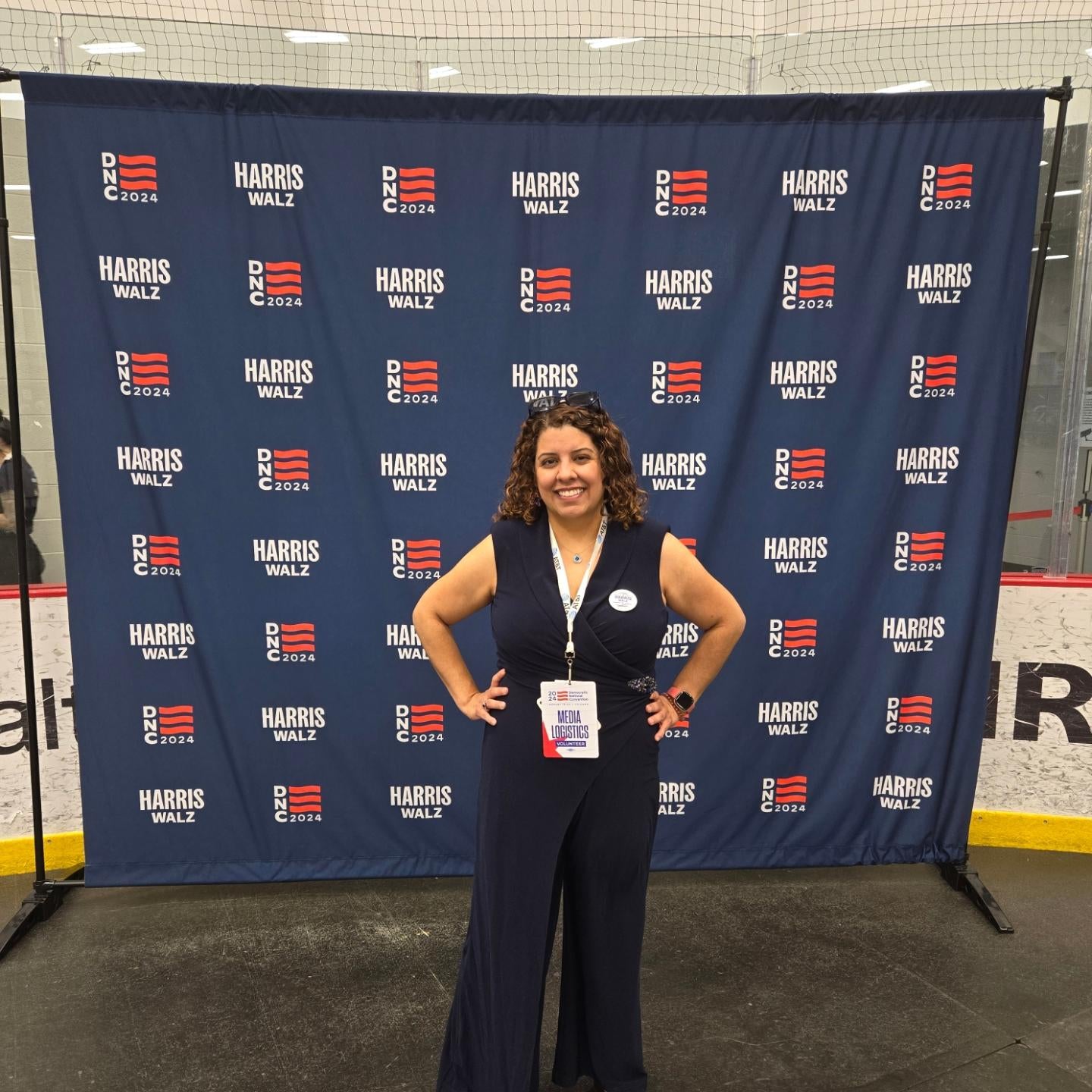
In between volunteer duties, colleagues and I took turns heading to the upper levels (or sometimes, if we were lucky, close to the convention floor) of the United Center in Chicago to catch primetime speeches by President Joe Biden, former Secretary of State Hillary Clinton, former first lady Michelle Obama, and other political superstars. I was able to meet Rep. Jamie Raskin of Maryland, a mental-health advocate who I greatly admire. I was also stationed within feet of Pete Buttigieg, whose speeches and media interviews I look to as both sources of personal inspiration and as good examples of expert message delivery.
Some tasks were different this time, but the process was familiar to me. Because before I became a pro-choice, climate-conscious, universal-healthcare-supporting Democrat, I volunteered at the Republican National Convention in New York City in 2004.
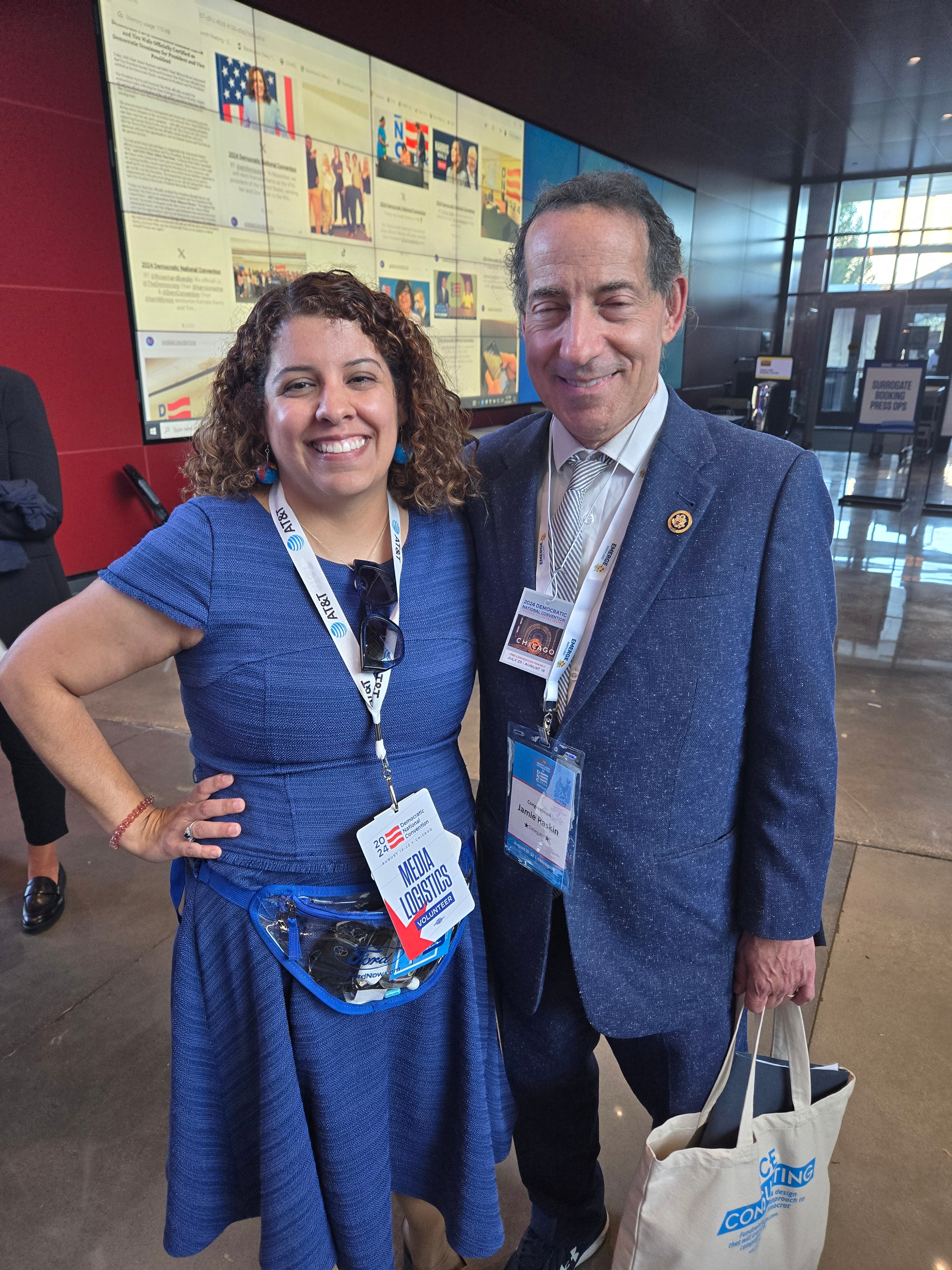
Growing up in a working-class New Jersey town, my identity as the American-born daughter of elder Cuban exile parents shaped my worldview. Summers spent in Miami’s Little Havana with family only reinforced my conservative upbringing. I attended anti-communist plays (I often was the only child in the audience) and participated in hours-long pig roasts where my parents and maternal grandmother joined uncles, aunts, cousins, and other family as they animatedly discussed the fall of the Soviet Union and the latest US-Cuba policies. These discussions weren’t just about politics; they were about who we were, and who we might be in the future.
By 2004, I was a 21-year-old college senior, but I was an anomaly among my peers. While most college kids typically decorate their dorms with a string of lights, potted plants, a photo wall, and music posters, I displayed “Bush Cheney ‘04” campaign signs, anti-communist bumper stickers, and pictures of myself with local Republican politicians.
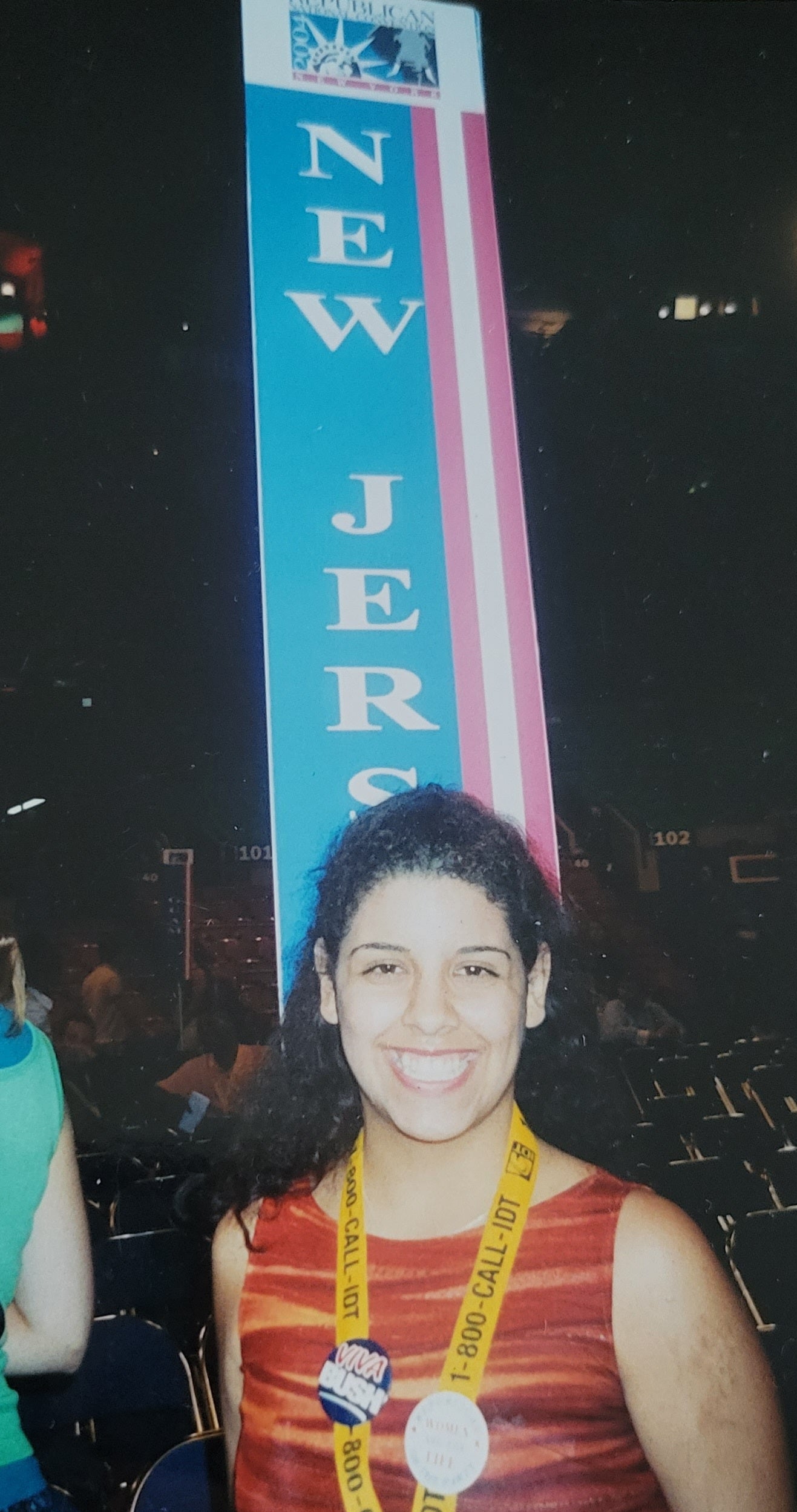
At the time, I hadn’t yet begun fertility treatments or knew of friends who needed medically necessary abortions (or chose to terminate their pregnancies for other reasons.) I had not yet worked for a global wildlife conservation organization, which opened my eyes to the urgent need for action on environmental issues. My friends and I hadn’t yet been laid off or left jobs during health crises, leading me to realize how crucial universal healthcare can be.
But gradually, as the years went on, all of that happened — and my views changed in response to the life that I was living.
Dad and I – who barely spoke as it was – found less to talk about when I registered as a Democrat in the early 2010s. We did find some common ground near the end of his life, though. When he received his primary ballot to vote in New Jersey in June 2020, Dad looked at me and said, “I don’t want to vote for Trump. He said the pandemic would be over by Easter, and everything would be open, and he lied.”
“Papi, does that mean you’re ready to finally vote for a Democrat?” I joked.
“Me, vote for a Democrat? No, never,” he answered, without hesitating. “What else can I do?”
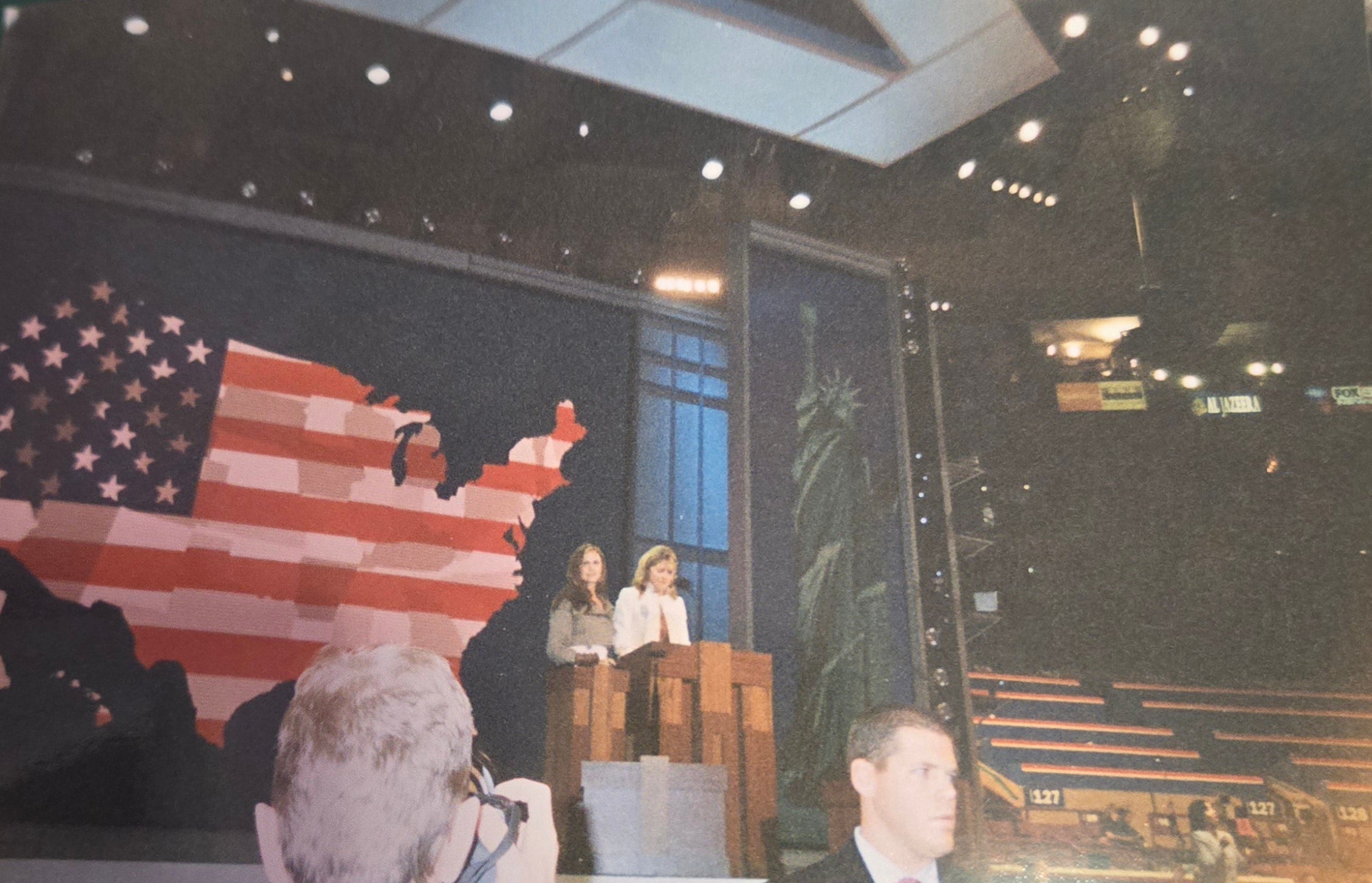
“Well, you can write someone in,” I said.
“Okay,” Dad responded, and penned the name of Marco Rubio, Florida’s Cuban-American senator, in the write-in box.
Today’s version of the GOP — with its insistence on policing women’s reproductive choices and controlling what books students can or cannot read — feels like a scary glimpse into the kind of terrifying government overreach that my parents and other family members escaped from.
I think Dad sensed that, too, because he admitted during that same conversation: “Carmen, the Republican Party is no longer what it used to be.”
“I guess we can agree on that,” I answered.
Carmen Cusido is a freelance writer based in Northern New Jersey. She is working on a memoir about grief and loss titled Never Talk About Castro and Other Rules My Parents Taught Me.
Join our commenting forum
Join thought-provoking conversations, follow other Independent readers and see their replies
Comments